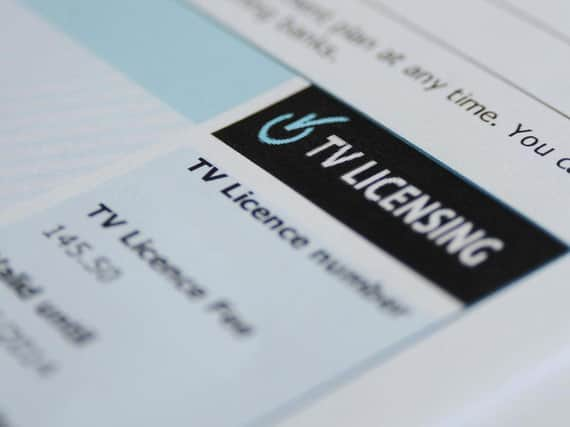Free TV licences for over 75s: We took on concession at height of austerity, says BBC director-general


Director-general Lord Tony Hall claims that cuts and an incoming Tory government lie behind the BBC decision to take on the expensive concession, which would have cost the broadcaster £725 million by 2020.
The Government has also been criticised for a lack of transparency in negotiations over the BBC's charter, which enshrined the duty to pay for over 75s licences.
Advertisement
Hide AdAdvertisement
Hide AdThe corporation will now means test the licence to prevent financial risk to other services.
The move to restrict free licences to those in receipt of pension credit from next summer could impact more than 75,000 older people in Northern Ireland, the Older People's Commissioner has said.
Lord Hall said that the arrangement was a good deal at the time in 2015, at the "height of austerity".
The manner in which charters are negotiated with government has also been criticised as "extremely poor" and happening "behind closed doors".
Advertisement
Hide AdAdvertisement
Hide AdThe latest charter includes the BBC shouldering the cost of free licence fees for the elderly.
Speaking to the House Of Lords Communications Committee, Lord Hall was questioned over the concession.
He said: "Remember the context of this: 2015, height of austerity, incoming Conservative government.
"I remember the conversation with the then secretary of state, that this was going to happen come what may.
Advertisement
Hide AdAdvertisement
Hide Ad"We took on this policy, and it was made quite clear at the time that the policy would come to us and we would have to consult on it, and that is exactly the position we're in now.
"We have to find a way of doing this in public."
Sir David Clementi, chairman of the BBC, has also criticised the lack of transparency in the arrangements between government and the corporation.
He has called on future negotiations to involve the public and be done more openly.
Speaking to peers alongside Lord Hall, he said: "We think the manner in which the 2010 and 2015 settlements were done was poor.
Advertisement
Hide AdAdvertisement
Hide Ad"They were done behind closed doors, very little input from the BBC, none at all from the public.
"Really, for a government that believes in transparency, a pretty odd way to go about business.
"We think in future it must be evidence-based, a proper consultation.
"There needs to be a public debate, Frankly, the manner in which it's been done historically is extremely poor."
Advertisement
Hide AdAdvertisement
Hide AdFree TV licences were first paid for by a Labour government in 2000. Under the Conservatives in 2015, ministers announced that an agreement had been reached between government and the BBC, and the broadcaster would shoulder the cost.
Then media minister John Whittingdale told MPs in the House Of Commons: "We are all content that it delivers the objective of helping to reduce the deficit while at the same time giving the BBC some of the guarantees they need about their future."
A Government spokesperson said: "We're very disappointed with this decision - we've been clear that we want and expect the BBC to continue this concession.
"People across the country value television as a way to stay connected, and we want the BBC to look at further ways to support older people.
Advertisement
Hide AdAdvertisement
Hide Ad"Taxpayers want to see the BBC using its substantial licence fee income in an appropriate way to ensure it delivers for UK audiences, which includes showing restraint on salaries for senior staff."
Age UK's 'Switched Off: Save free TV for older people' online petition, which demands the Government takes back responsibility for funding free TV licences, has been signed by more than 560,000 people.